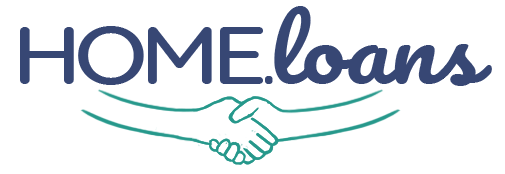Mortgage Insurance Premiums for FHA 203(b) Loans
When it comes to looking at the expenses that come along with a 203(b) loan, one of the most important thing to realize is that the FHA requires that all FHA borrowers purchase and carry mortgage insurance. This is similar to private mortgage insurance, but applies only to FHA loans. It serves the same function, though, and it does increase your costs.
Why Is MIP Required?
Mortgage insurance is mandatory on all new FHA loans, no matter how much you have as a down payment. In comparison, a conventional loan only needs mortgage insurance if you have less than 20% of the home’s value as a down payment. Why is mortgage insurance required?
The point of mortgage insurance is to ensure that lenders are protected in the event that you default on the loan? But isn’t that the reason that the FHA guarantees these loans in the first place? Are lenders somehow benefiting from double protection?
Not really. The way it works is actually pretty simple:
You apply for an FHA loan and are accepted.
You make a low down payment of just 3.5% (lower than what is possible with a conventional loan).
The lender approves the loan, and the FHA guarantees the loan to the lender.
One thing that does not stand out in this process is that guaranteeing your loan costs the FHA money. It should be noted that the FHA is not funded by public taxes. As such, the organization requires a way to maintain their cash reserves, which are determined by Congress. This is where your mortgage insurance premiums come into play.
The money you pay into the program is used by the FHA to cover claims of lenders who are facing defaulting borrowers whose loans are guaranteed by the FHA.
What You Can Expect with Mortgage Insurance
You will incur two specific insurance payments. One will be due up front at the time of closing, and the other will be paid each month over the course of your loan. We’ll walk you through both types below.
UMIP: There will be a one-time, upfront fee for this called an upfront mortgage insurance premium, or UFMIP or UMIP. The maximum upfront fee that you will have to pay is 1.75% of the base loan amount. So, for a $200,000 home, that would be $3,000. This amount is paid at the time of closing as part of your closing costs. However, the FHA does allow you to roll that into the mortgage itself if you do not have the extra cash to pay it upfront. While this is possible, it is not always advisable, as it can increase the cost of your mortgage.
AMIP: The next consideration is your annual mortgage insurance premium, called an annual MIP or AMIP. It is broken down into monthly payments, and is added to your mortgage payment.
The monthly mortgage insurance payment you will incur will depend on several different factors. These include the loan amount, but also your loan-to-value ratio, as well as the loan term and type. Generally, if your loan is for longer than 15 years and your loan-to-value ratio is 95.01% or higher, you’ll pay .85% in annual MIP charges. If your loan-to-value ratio is 95.00% or less, then you’ll pay .80%.
However, if your loan is for 15 years or less and you have a loan-to-value ratio of 90.01 or more, you’ll pay .70%, while a loan-to-value ratio of 78.01 to 90% will come with an annual MIP of .45%.
It is important to understand that private mortgage insurance can be cancelled when you reach a loan-to-value ratio of 80%, and the lender is supposed to automatically remove it when your LTV drops below that point. However, with an FHA loan, most borrowers cannot cancel their mortgage insurance premiums, no matter how low their loan-to-value ratio drops. Note that this may change over time, though, as HUD does revise policies periodically.
How Long Will Mortgage Insurance Be Necessary?
In most cases, you will be required to carry mortgage insurance for the duration of your FHA loan. There are only a couple of instances in which you can avoid this. For those whose loans were issued on or after June 3, 2013, if you put down 10% or more of the home’s value as a down payment and have a fixed rate loan, you will only need to pay mortgage insurance for 11 years. After that point, it will be cancelled, and your mortgage payment will be reduced.
If your loan was issued before June 3, 2013, the situation is a bit different. In this case, a 15-year loan (or shorter term) with 22% or higher down payment will not require any mortgage insurance. If you put down less than 22% with the same loan, your mortgage insurance premium will cancel at 78% loan to value ratio. If you have a 30-year fixed rate mortgage with a down payment of 22% or higher, your mortgage insurance premium will cancel after 5 years. For the same loan with less than 22% down, the MIP will cancel when you reach 78% LTV.
As a note, the final section above is included only for the sake of those assuming a mortgage originating before June 3, 2013. All new FHA loans fall into the former category discussed in the initial paragraph above.


